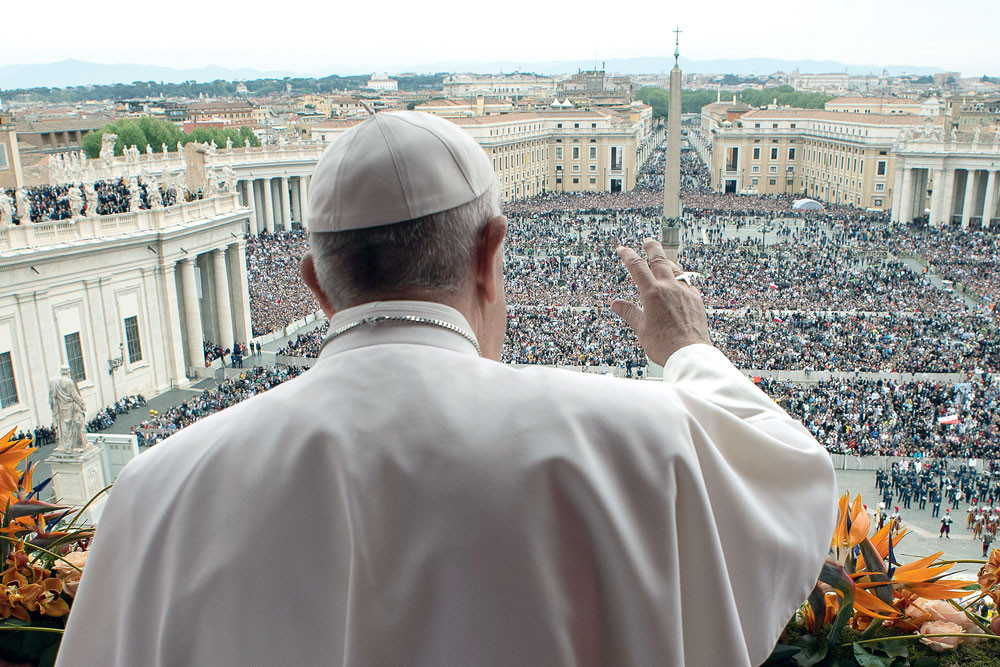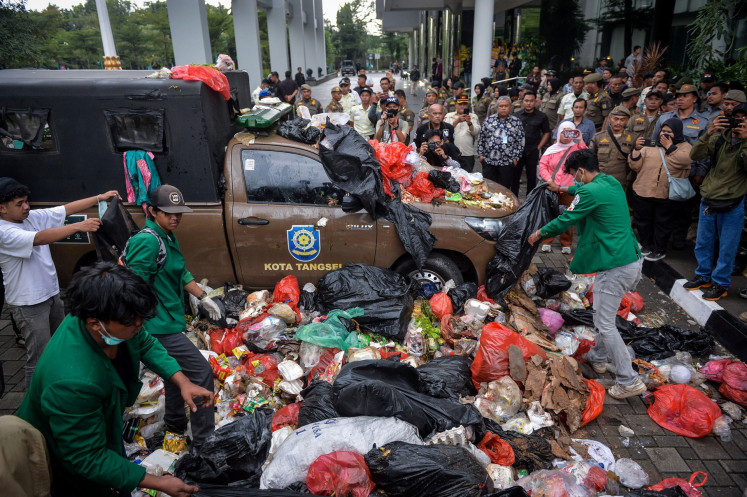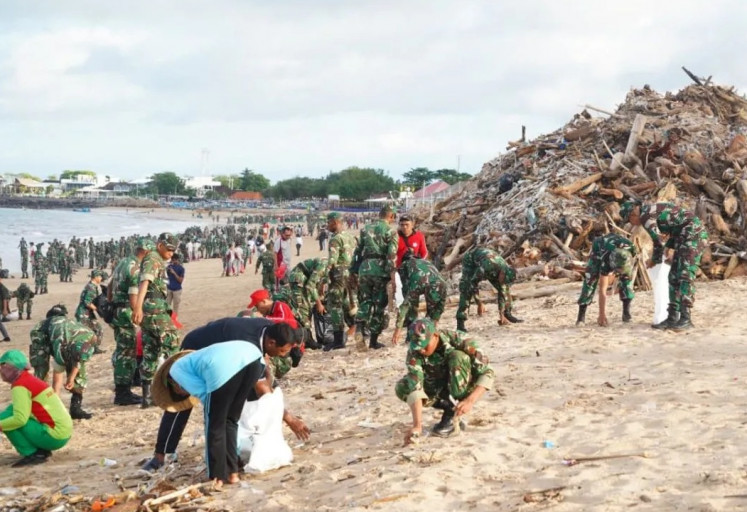Popular Reads
Top Results
Can't find what you're looking for?
View all search resultsPopular Reads
Top Results
Can't find what you're looking for?
View all search resultsBroken trust: Catholic Church and sexual abuse
The Catholic Church in Indonesia needs to make its position very clear on the sexual abuse cases recently reported in media.
Change text size
Gift Premium Articles
to Anyone
R
ecently a report about sexual abuse in the Catholic Church in Indonesia was published in the weekly magazine Warta Minggu. The piece was then re-published in The Jakarta Post on Dec. 10 with slight changes of title and angle.
According to the article, more than 50 victims were sexually abused, mostly by Catholic priests. This number is a rough estimation; it could be hundreds if the investigation goes further back into historic abuses.
The report was based on some raw data discussed at the Catholic University of Atma Jaya in Jakarta in late November.
Implicitly, the article suggests that the main concern in response to abuse cases should be to protect the victims, not to safeguard the institutional reputation of the Catholic Church.
This is indeed a great commitment and it should be so. Of course, this commitment has yet to be seen when the cases of sexual abuse by clergy are reported to authorities for investigation and possibly to the courts of law to seek justice.
Pope Francis, through his apostolic letter Vos Estis Lux Mundi issued in May, demanded that every diocese create a reporting system of sexual abuse cases by clergy. Clearly this is an important step. From the faith perspective, sexual crimes are indeed crimes against God.
They hurt and harm not only the victims, but also the entire community of the faithful — physically, psychologically and spiritually. Sexual crimes are truly crimes against humanity and thus should be seen as a problem of human rights.
An important question remains to be answered: How will the Indonesian Catholic Church respond to the pope’s request?
It shouldn’t be too difficult to create a reporting system for alleged sexual abuse cases by clergy in every diocese or archdiocese. But what might be difficult, I think, is to make the system effective in the reporting and investigating of the alleged abuses.
People who are appointed to handle the reports have to be truly independent and professional. In order for the victims to be able to receive appropriate counselling and to seek justice, abuse cases, particularly the very serious ones, must be reported to the police immediately.
The chairman of the Indonesian Council of Bishops, Ignatius Cardinal Suharyo, has questioned the authenticity of the report of the sexual abuse, saying he has never received it.
The article outlining sexual abuses in the Catholic Church is nothing new. Numerous pieces about the problem have been published in various media outlets. The Catholic Church hasn’t been the only one caught up in the issue. Other institutions have as well.
Globally over the past few years the Catholic Church in the United States, Europe, Australia, Chile, Canada and India has been in the spotlight, precisely for that reason. Many cases of sexual abuse by priests, even bishops and cardinals, were brought into the public eye. It’s truly a nightmare and a shame.
The recent publication of the article about sexual abuse in the Catholic Church comes as no surprise either, but it is a relief that finally some within the local church hierarchy have begun to talk about the matter more openly and publicly.
At the national level, the recent discussion at Atma Jaya on the issue could be seen as an indication of the seriousness of people within the Catholic Church to consider reporting abuse cases to the police.
If reports of abuse are made to police, it isn’t the end of the Catholic Church. It definitely would not destroy the church.
Instead, it could mark a new positive beginning for the church to reform itself. Constant renewal is required by the church in order to remain meaningful to the world, or to become the salt and light of its communities, not to become a stumbling block for people.
The discussion at Atma Jaya should extend to other types of abuses, such as abuse of power and trust.
A priest’s involvement in a sexual relationship, for example, even though it might be consensual, could be regarded as a form of abuse of power and trust because of the position the priest and the pledge he made at his priestly ordination to live in celibacy.
When a priest is involved in sexual scandal, the church would feel the pain and confusion. The trust placed in priests is gradually eroded and could be lost completely.
When the trust is lost, the power or influence of the priests and moral voices are weakened and could even disappear.
There is a very dark undercurrent to the cases of sexual abuse. Catholic priests are supposed to be celibate.
However, the reality is different and these rules do not seem to be adhered to in practice. Many priest are rumoured to have engaged in sexual acts, both heterosexually and homosexually.
The sexual abuses by clergy reflect a profound crisis that shakes the foundations of the church to the core. Sexual abuses are individual crimes, but they could extend to the accountability and sense of morality held by the church authorities, particularly if it is found that the church has been involved in a cover-up.
The Catholic Church in Indonesia needs to make its position very clear on the sexual abuse cases recently reported in media.
In any event, the church needs to take action to limit any damage done to the public confidence and trust in their moral authority. This is a real challenge to the Catholic Church at all levels: local, national and global.
***
Asia Institute, University of Melbourne, Australia.










